bizarre behavior change in cat
bizabet
13 years ago
Related Stories

HEALTHY HOMEHow to Childproof Your Home: A Grandmother’s Wisdom
Change kids’ behaviors, not your entire house, to keep the designs you like and prepare children for reality
Full Story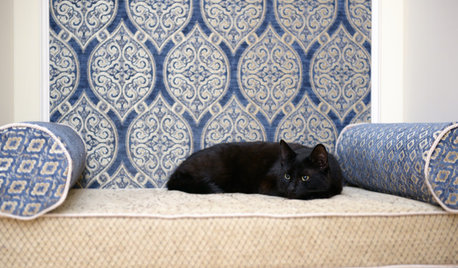
PETS10 Tips for Keeping Indoor Cats Healthy and Happy
It's National Cat Day: Ask not what your cat can do for you (because it will ignore you) but what you can do for your cat
Full Story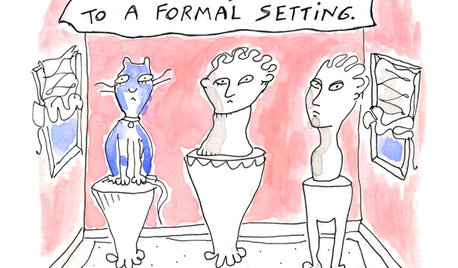
MOST POPULAR7 Ways Cats Help You Decorate
Furry felines add to our decor in so many ways. These just scratch the surface
Full Story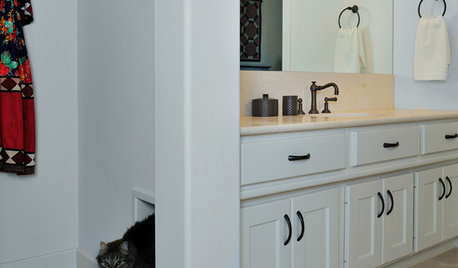
PETSSo You Want to Get a Cat
If you're a cat lover, the joys outweigh any other issue. If you haven't lived with one yet, here are a few things to know
Full Story
PETSHouzz Call: Send in the Design Cats
Post your best photo of your cat at home, in the garden or with you in your studio. It could be published in a featured ideabook
Full Story
PETSHouzz Pets Survey: Who Rules the House — Dogs or Cats?
New data shows that pets make people happy, and pet owners love spending big to return the favor
Full Story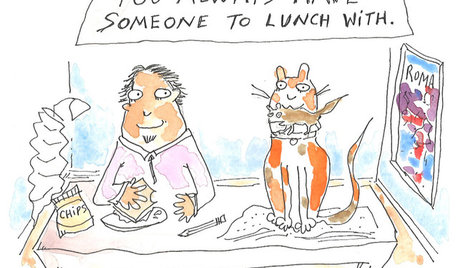
FUN HOUZZ6 Reasons Every House Needs a Cat
Everyone should have a feline fixture as part of their home decor. Here's why
Full Story
REMODELING GUIDESYou Won't Believe What These Homeowners Found in Their Walls
From the banal to the downright bizarre, these uncovered artifacts may get you wondering what may be hidden in your own home
Full Story
PETSDealing With Pet Messes: An Animal Lover's Story
Cat and dog hair, tracked-in mud, scratched floors ... see how one pet guardian learned to cope and to focus on the love
Full Story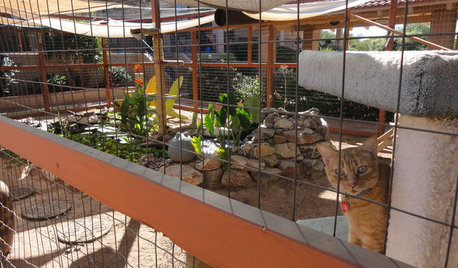
PETSSee a Deluxe 'Catio' Built for Feline Fun
Sixteen lucky cats get the run of a protected outdoor patio with ramps, steps and even a koi pond
Full Story





Meghane
bizabetOriginal Author
Related Professionals
Madison Heights Architects & Building Designers · Town and Country Architects & Building Designers · Rockland Interior Designers & Decorators · Beaufort Furniture & Accessories · Jupiter Furniture & Accessories · Bonita Cabinets & Cabinetry · Town 'n' Country Cabinets & Cabinetry · Alpine Flooring Contractors · Bellevue Flooring Contractors · Easton Flooring Contractors · Marlborough Flooring Contractors · Norton Flooring Contractors · Oak Ridge Flooring Contractors · Seymour Flooring Contractors · Woodbury Flooring Contractorsannzgw
bizabetOriginal Author
Meghane
bizabetOriginal Author
laurief_gw
bizabetOriginal Author
laurief_gw